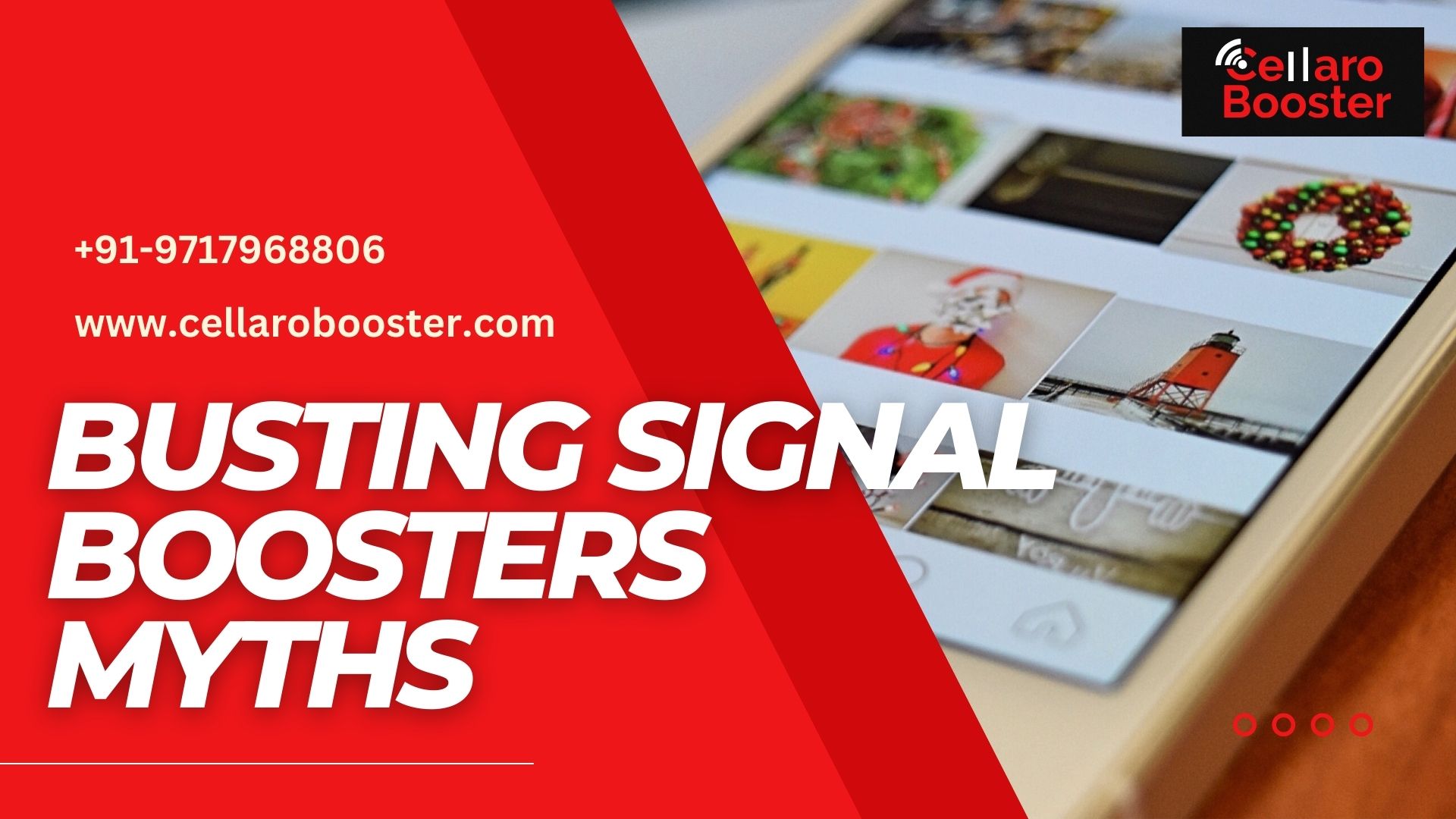Many people struggle with poor cell phone reception, and it can be incredibly frustrating. One solution to this problem is a cell phone signal booster. But with so much misinformation floating around, it’s no wonder people are skeptical. In this article, we’ll debunk five common myths about cell phone signal boosters and help you make an informed decision.
Myth 1: Cell Phone Signal Boosters Are Snake Oil
Many folks think cell phone signal boosters are fake, promising amazing results without delivering. However, this couldn’t be more wrong. Signal boosters are devices that make weak cellular signals stronger. They improve call quality and internet speeds. They catch the signal from the nearest cell tower. They then increase the power of the signal. Finally, they send out the stronger signal where you need it.
A signal booster has three main parts: an outside antenna, an amplifier box, and an inside antenna. The outside antenna grabs the signal from the cell tower. The amplifier takes that signal and makes it stronger. The inside antenna spreads the boosted signal through your home or vehicle.
Myth 2: Stickers Can Boost Your Cell Phone Signal
You’ve probably noticed ads for cell phone signal boosters that look like stickers, claiming improved signal strength just by sticking them on. These stickers don’t truly boost signals like real boosters do. They don’t actively amplify the signal. While they could help in certain cases, the signal improvement is insignificant compared to a proper booster.
Signal stickers are passive devices. They don’t amplify signals like boosters, which actively amplify signals. Stickers may slightly improve signals in some situations, but they can’t match a real booster’s performance.
Myth 3: All Signal Boosters Are The Same
Signal boosters vary in their capabilities. Different boosters exist depending on factors such as bandwidth, range, frequency, and more. Analog boosters are common. They amplify all cellular signals, regardless of carrier or frequency, using traditional amplification tech. These boosters typically require an outside antenna and often come with adjustable gain controls for fine-tuning signal strength.
Smart signal boosters use advanced tech to selectively boost specific carrier frequencies. This allows them to provide targeted, stronger amplification for your carrier, often resulting in better overall performance compared to analog boosters.
Consider your needs and the booster type carefully. Think about the area size, your carrier, and the device you’ll use. Is it for home, vehicle, or business? Weigh these factors to pick the right signal booster. Not all boosters work the same way. Some cover small spaces while others handle larger areas effectively. Certain carriers perform better with specific boosters too. And your device could be a phone, tablet, or something else entirely. Take time evaluating which solution fits best. That’s how you find the perfect signal booster.
Myth 4: Signal Boosters Are Illegal
Many think cell phone boosters aren’t allowed, but that’s wrong. Boosters are okay in India if they follow rules. The authority says how boosters must work and look – so they don’t mess up other wireless stuff or harm cell networks.
You should check if the booster you want has authority approval before buying. Good brands like Cellaro make boosters meeting all those regulations. Their boosters work properly and don’t cause trouble.
Myth 5: 5G Will Make Signal Boosters Obsolete
Despite 5G’s arrival, signal boosters won’t disappear immediately. Though 5G promises faster data and better networks, its coverage remains sparse, particularly in rural regions. Additionally, 5G’s high frequencies struggle penetrating buildings and obstacles.
Therefore, cell phone signal boosters will still crucially ensure strong, dependable connections as 5G networks grow. In fact, many booster manufacturers already develop 5G boosters to address the rising demand for superior connectivity in the 5G era.
Conclusion
In conclusion, cell phone signal boosters are a proven and effective solution for improving cellular reception, and the myths surrounding them are largely unfounded. By understanding the truth behind these myths, you can make informed decisions about whether a signal booster is right for you and choose the best device to meet your specific needs.


 Call Us
Call Us Whatsapp
Whatsapp Enquiry Form
Enquiry Form